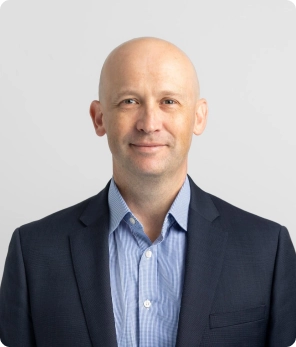A cupcake is not enough – The deeper call of R U OK Day
- Everyone is busy managing their own load and may not notice a struggling coworker.
- The new norm of remote working reduces our opportunities to see colleagues daily and check on them in person or perhaps observe their struggle.
- Many people may be uncomfortable having conversations about mental health.
- People may be unsure of the balance between personal and professional conversations.
- Some people may not feel comfortable or safe sharing their challenges with work colleagues.
Psychological safety in workplaces
Psychological safety refers to an environment where individuals feel empowered to take risks, voice concerns, and be genuine without fearing repercussions or ridicule. This type of safety has become increasingly recognised in today’s workplaces and has been specifically addressed in codes of practice and Work Health and Safety regulations in most states and the Commonwealth of Australia, most recently earlier this year in Queensland. These regulations mandate organisations to take reasonably practical steps to manage and reduce psychosocial risks in the workplace. Factors to consider include the way work is organised and managed, the working environment or requirements to work in physically hazardous environments as well as social factors such as workplace relationships and social interactions. What is most important is that psychological safety isn’t just a nice-to-have or something to be complied with; it’s the bedrock on which resilient teams are built. Not only does it foster open and transparent dialogues, but it also acts as a catalyst for innovation. When individuals know they can share their ideas or concerns without fear, they are more likely to feel valued, understood, and a part of a larger collective. This atmosphere is a nurturing ground for creativity, collaboration, and collective well-being. And finally, an environment underpinned by psychological safety not only attracts top talent but also retains it, creating a virtuous cycle of growth and innovation.The science of asking and listening
While asking about someone’s well-being and attentively listening might seem straightforward, the underlying psychology is complex. A simple “Are you OK?” can facilitate a cathartic experience for the responder, allowing them a platform to vent and find solace. On the flip side, the listener fosters empathy, creating neural pathways associated with understanding and compassion. However, the act of empathy can also carry emotional weight. The listener may inadvertently absorb some of the emotional distress shared by the responder. It’s essential for those initiating the conversation to have strategies in place to handle the emotions they might encounter, ensuring they aren’t overwhelmed by them.
Here are some tips to make the “R U OK?” conversations more effective:
- Approach with empathy and remember, your role isn’t to fix their issue. For example, “I noticed you’ve been acting differently recently. Is everything okay?”
- Prioritise listening. Genuine listening requires setting aside personal biases and opinions. When someone feels genuinely listened to without judgment, they are more likely to share deeper feelings.
- Set emotional boundaries: Differentiate between supporting someone and absorbing their emotions by visualising a protective shield to validate without internalising feelings.
- Use grounding exercises, like deep breathing, before and after intense conversations.
- Self-Care: Prioritise regular self-care, from short breaks and hobbies to meditation or therapy.
- Check in with the person to show that you genuinely care and are there for ongoing support, even if it’s just a simple “How are you feeling today?” or “I just wanted to ask how things are going.”
- Respect boundaries: It is ok if someone doesn’t want to open up immediately. Sometimes knowing that someone cares enough to ask can already be comforting. The gesture of reaching out is already powerful and kind.
The leadership role in well-being
Leaders play a pivotal role in shaping a positive work culture by ensuring open two-way communication with team members and being proactive in managing concerns, risks and issues. However, it’s vital to understand the fine line between being supportive and playing counsellor. Leaders don’t have to have all the answers or provide direct psychological support, but they should know to help people navigate getting the assistance they need. At bdna, our ways of working encourages frequent check-ins, regular personal retrospectives, and an environment where input on organisational improvements is sought, and actions are shared transparently.Our special approach to employee support
The benefits of a truly supportive work atmosphere are clear: our dedicated teams work with a focus on outcomes, not just hours clocked in. We have a low-hierarchy organisational culture and trust and encourage our teams to find a balance that suits both their professional commitments and personal lives. While some weeks might be packed with client deliverables, on others, we understand the need to juggle school, sporting, or personal events. Our emphasis is on achieving results and respecting individual needs, to promotes a flexible work environment. We organise numerous team-building and social events, and ensure that everyone can access professional development resources and opportunities to grow their skills and careers. One element of our culture that we are most proud of, is that we operate as one team, always willing to support each other when needed – making a difference, not just in the work we do, but in how we interact with each other. Access to a robust Employee Assistance Program (EAP) for professional psychological support with no out-of-pocket expenses for team members is central to most organisations’ framework for supporting team members. Through our partnership with Change Futures our team members are able to access comprehensive psychological support for both work-related and personal challenges and this can also be extended to immediate family members where needed. In our commitment to one another, we want to ensure we’re grounded and well-supported ourselves. It’s a journey of mutual respect, empathy, and understanding. We want to walk it together, every day, not just on special occasions like 14 September.Conclusion
The pressures of deadlines, relationships with colleagues, and the constant quest to strike a balance between work and personal life can be challenging. For some, the workplace becomes a source of constant anxiety and, in extreme cases, can lead to burnout. It’s important that employers recognise this intertwined relationship and cultivate an environment where mental health is prioritised.
“Are you OK?” – these three words carry deep meaning. As we mark R U OK? Day, our call is not just to ask but to truly listen, ready for whatever the answer might be.
It’s important to not wait for the crisis before reaching out for help – we’re surrounded by individuals willing to support if we just let them know we need it.
So, let’s extend our awareness beyond just 14 September:
- Educate yourself on the subtle signs that someone might be struggling.
- Be present with others when engaging with them so that you are more likely to build a stronger relationship, and be someone they can comfortably ask for help.
- Be self aware and proactive – if you’re feeling overwhelmed, consider talking to your EAP, a GP or another professional.
And lastly, remember, having an off day is perfectly normal; no one is on a high constantly.
This R U OK? Day who are you checking in with?






